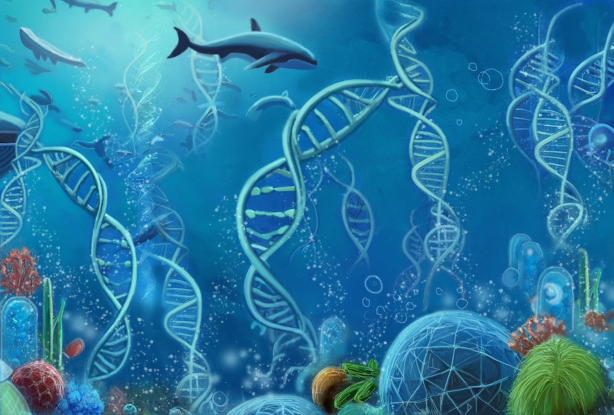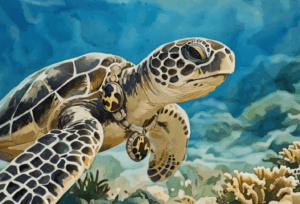
The first semi-comprehensive study on ocean genomics finds possible applications in medicine, climate change, and other fields of study, laying the foundation for future oceanic gene analysis.
A team of nine researchers, most of whom affiliated with King Abdullah University of Science and Technology (KAUST), provided an original analysis of 2102 ocean metagenomes. The data was taken from the KMAP Global Ocean Gene Catalog 1.0, the largest open-source database containing gene clusters, geographic location, and other factors. In total, 164.8 million gene clusters were examined, spanning a catalog of organisms from all across the world.
Findings from an in-depth analysis of microbial genetic makeups have an adverse number of applications, most notably in medicine. With fungi representing over 50% of the gene clusters in the mesopelagic zone, also known as the twilight zone, it is possible that naturally occurring molecules might hold antibiotic properties. Other biological compounds found in bacteria, which accounted for over 70% of the gene clusters, have been found with antibacterial and antiviral capabilities.
The study also analyzed these bacterias’ metabolic processes and their ability to facilitate elements such as carbon, nitrogen, and sulfur, all of which are found within our atmosphere. A close-up inspection could reveal more information about the Earth’s climate and would lead to a deeper understanding of the relationship between organisms and the atmosphere in the biogeochemical cycle.
Yet still, the secrets of the oceans are yet to be unlocked. Many of these genes’ capabilities are still to be discovered, and the study solely provides a baseline for future discovery as we continue to learn more about our planet’s biodiversity and functionality. As this department progresses, a greater understanding of our ecosystem and its interconnected relationships may unlock unfound innovation.
Works Cited
Laiolo, Elisa, et al. “Metagenomic Probing toward an Atlas of the Taxonomic and Metabolic Foundations of the Global Ocean Genome.” Frontiers, Frontiers, 22 Dec. 2023, www.frontiersin.org/journals/science/articles/10.3389/fsci.2023.1038696/full.
The views and opinions expressed are those of the authors and do not necessarily reflect nor represent the Earth Chronicles and its editorial board.




